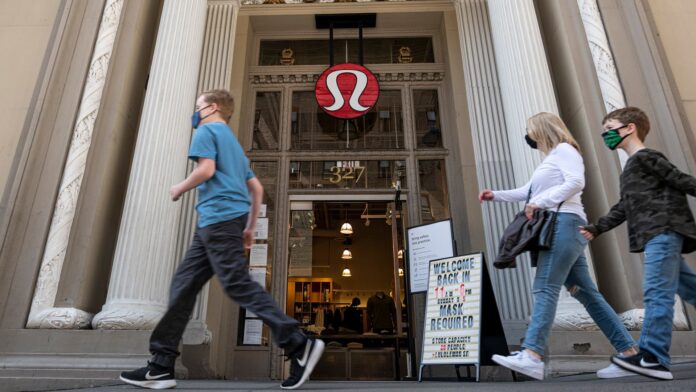Retailers across the board are approaching the most important time of the year: the holiday period . Slated to unofficially kick off this week with Black Friday, the holiday season is best known as the period when retailers make a nice chunk of sales. But that arrangement is under pressure this year as the industry faces an uncertain macro climate. While supply chain constraints dating back to Covid-19 have largely eased, retailers now contend with mounting inventories and consumers who are not too keen on discretionary purchases as inflation hovers near record highs. “Overall, we think inflationary pressures are clearly weighing on the consumer and expect a challenging holiday season for apparel/e-commerce amid an increasingly promotional environment,” wrote KeyBanc Capital Markets’ Brad Thomas in a note to clients Monday. Despite this bleak picture, there are some names best positioned to weather the macro storm and come out okay this Black Friday: those that cater to discount-conscious consumers or target the affluent. Within the discount space, Thomas favors both Walmart and Ollie’s Bargain Outlet , saying that investors can “play offense and defense within the dollar and discount space” by owning these stocks. Shares of both Walmart and Ollie’s have fared better than the broader market — which is down 16% — trading up 4.8% and 15.9%, respectively. Other retail stocks haven’t performed as well, with the SPDR S & P Retail ETF tracking the sector down 26.4% year to date. Walmart shared better-than-expected third-quarter earnings earlier this month and lifted its outlook as consumers turned to its cheaper grocery options and the company works through inventory issues. Many retailers have dealt with mounting inventories spurred by pandemic-era supply chain constraints and changing consumer preferences as lockdowns eased. Given this backdrop, Thomas expects names such as Lululemon , Tommy Bahama owner Oxford Industries and Nordstrom , which cater to affluent shoppers, to fare the best this season — even if consumer spending slows. “We highlight LULU and OXM as two names where demand has appeared to remain resilient despite the macro environment, with LULU continuing to benefit from the broader casualization of apparel coupled with ongoing newness, and OXM benefiting from strong brands and a focus on resort-wear as travel trends remain strong,” Thomas wrote. Oxford Industries’ lower earnings-per-share exposure to the fourth quarter should also decently situate it this holiday season. Nordstrom will likely experience promotions ahead, but earlier attempts to work through inventory and a higher-end customer base should prepare it to navigate rough waters, Thomas added. Of KeyBanc’s global brands and e-commerce picks, Lululemon shares have performed the worst, down more than 9% this year. Nordstrom’s stock is basically flat, while Oxford Industries’ stock has risen 12.8%. KeyBanc’s $30 price target on Nordstrom suggests shares could rally more than 32% from Tuesday’s closing price. Lululemon reported a beat on the top and bottom lines for the second quarter and upped its outlook even as consumers dealt with inflationary pressures. — CNBC’s Michael Bloom contributed reporting.
© heardonwallstreet.com


